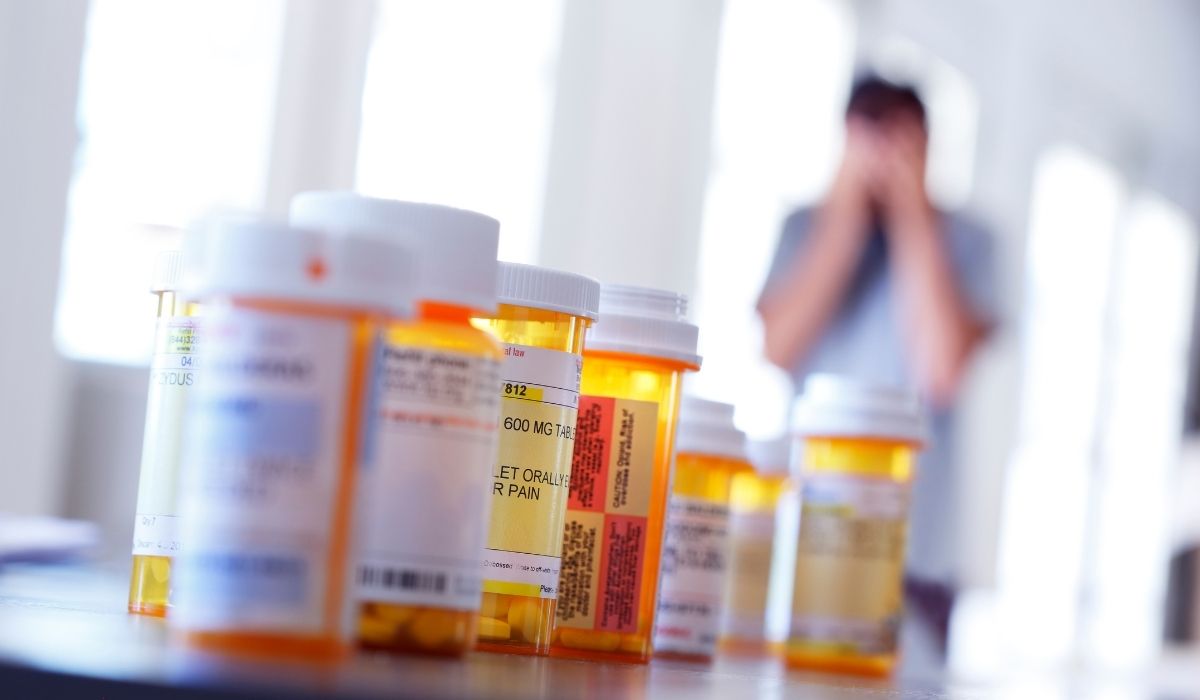If you or someone you love drinks heavily and wants to stop, you might wonder, “Will a hospital detox you from alcohol?” The short answer is yes — hospitals can safely help people detox from alcohol under medical care.
Alcohol detoxification in a hospital is often the first step toward recovery. It’s designed to help your body get rid of alcohol safely, while doctors, nurses, and therapists manage symptoms and protect your health.
In this guide, we’ll explain what happens during hospital detox, when you should go, and what to expect during your stay.

What Is Alcohol Detoxification?
Alcohol detoxification (often called alcohol detox) is the process of removing alcohol from your body after long-term use.
When someone stops drinking suddenly, their brain and body react to the absence of alcohol. This reaction is called alcohol withdrawal, and it can be dangerous without medical help.
The goal of detox is to help the patient get through withdrawal safely, with medication, nursing, and therapy support.
Why Hospital Detox Is Important
Alcohol is a substance that affects nearly every part of the body — the brain, liver, heart, and even the mental health of a person.
If someone drinks for a long time, their body becomes dependent on alcohol. When they stop drinking, withdrawal symptoms begin.
Some symptoms can be mild, such as:
-
Anxiety
-
Nausea
-
Vomiting
-
Irritability
-
Fatigue
-
Insomnia
But other symptoms can be severe and even life-threatening, like:
-
Seizures
-
Delirium tremens (DTs)
-
Hallucinations
-
High blood pressure
-
Rapid heart rate
This is why hospital detox is so important — it provides emergency medicine and constant monitoring to keep patients safe during withdrawal.
What Happens When You Go to the Hospital for Detox
When you arrive at the emergency department or check in to a hospital for alcohol detox, a medical team evaluates your health.
They’ll ask about:
-
How much and how often you drink
-
Any drug or opioid use
-
Medical history and medications
-
Symptoms you’re currently experiencing
Then, doctors and nurses create a treatment plan just for you.
1. Medical Assessment
You’ll get a physical exam and possibly blood tests to check your liver and other organs. These help doctors understand how much alcohol has affected your health.
2. Medication Support
Doctors may give medications to help reduce withdrawal symptoms like seizure, nausea, or anxiety.
Common medications include:
-
Benzodiazepines for calming and seizure prevention
-
Anticonvulsants to prevent seizures
-
Fluids and vitamins like thiamine to prevent delirium and dehydration
3. Nursing Care
Hospital nurses provide 24-hour care. They check your blood pressure, pulse, and breathing. They also help you stay comfortable and monitor for signs of delirium tremens or other complications.
4. Mental Health Support
Withdrawal doesn’t just affect your body — it affects your mind, too.
Many hospitals include mental health professionals who offer therapy or counseling to help manage anxiety, insomnia, and emotional stress.
5. Transition to Addiction Treatment
Once detox is complete, your medical team will help you plan your next step. This could include:
-
Inpatient rehab
-
Outpatient therapy
-
Support groups
-
Dual diagnosis treatment for mental health and addiction
When Should You Go to the Hospital for Alcohol Detox?
You should go to the hospital if:
-
You’ve tried to quit alcohol before and had severe withdrawal symptoms
-
You have a history of seizures or delirium tremens
-
You drink heavily every day
-
You have other health problems like heart or liver disease
-
You use other substances such as opioids or drugs
If you start shaking, vomiting, or feeling confused after stopping alcohol, go to the emergency department right away. These can be signs of dangerous withdrawal.
How Long Does Hospital Detox Take?
The length of a hospital stay for alcohol detox depends on your body, health, and drinking history.
On average:
-
Mild withdrawal lasts about 3–5 days
-
Moderate to severe withdrawal may take 5–10 days or longer
During this time, your body clears out alcohol while medical detox helps prevent serious symptoms.
After detox, your medical team may suggest therapy or rehab to help you stay sober.
What Happens After Detox?
Detox is only the first step in recovery. It helps your body heal, but staying sober requires emotional and mental support.
After detox, patients often enter one of the following programs:
-
Inpatient rehab: 24-hour treatment in a controlled setting.
-
Outpatient therapy: You attend therapy or support groups while living at home.
-
Dual diagnosis treatment: For those with mental health conditions like anxiety or depression along with substance abuse.
These programs teach coping skills, help manage stress, and offer support to prevent relapse.
What If You Don’t Get Help?
Trying to detox at home can be dangerous.
Without medical supervision, withdrawal from alcohol can cause:
-
Seizures
-
Delirium tremens
-
Heart problems
-
Extreme dehydration
-
Death
Hospitals have the training, equipment, and emergency medicine needed to manage these risks. Detoxing under professional care gives you the best chance to recover safely.
The Role of Therapy During Detox
Therapy plays an important role even during detox.
While doctors manage physical symptoms, therapists help with the emotional challenges of withdrawal.
Therapy sessions may include:
-
Cognitive-behavioral therapy (CBT) for managing thoughts and cravings
-
Motivational interviewing to strengthen your desire for sobriety
-
Family therapy to build support at home
These sessions prepare patients for the next steps of recovery and help them understand why they turned to alcohol or drugs in the first place.
Alcohol Detox vs. Drug Detox
Although alcohol and drug detoxification share similarities, alcohol withdrawal can be more dangerous because of the risk of delirium tremens and seizures.
In hospitals, both alcohol and opioid detox may happen side by side, but treatments differ:
-
Opioid detox often uses medications like methadone or buprenorphine.
-
Alcohol detox focuses on preventing delirium and seizures using benzodiazepines.
Both types require medical detox and close monitoring by health professionals.
Common Symptoms During Alcohol Detox
Here’s what patients might feel during the first few days of detox:
| Time After Last Drink | Common Symptoms |
|---|---|
| 6–12 hours | Anxiety, sweating, nausea, vomiting, tremors |
| 12–24 hours | Irritability, insomnia, mood swings |
| 24–48 hours | Fatigue, high blood pressure, rapid pulse |
| 48–72 hours | Seizure, delirium tremens, confusion, hallucinations |
Not everyone experiences all symptoms, but hospitals watch carefully for these signs to act quickly if needed.
Is Hospital Detox the Same as Rehab?
No, detox and rehab are different.
-
Detox is the first step, focusing on physical withdrawal.
-
Rehab is the next step, focusing on emotional healing and long-term recovery.
You might start detox in a hospital, then move to a treatment center or recovery village where you can continue with therapy and recovery programs.
Choosing the Right Treatment After Detox
After you leave the hospital, your doctor may recommend a rehab program based on your needs.
Some people benefit from:
-
Outpatient rehab, where you continue to work or go to school.
-
Inpatient rehab, if you need full-time care and structure.
-
Therapy for mental health issues like anxiety, depression, or trauma.
Long-term recovery involves taking care of your body, mind, and health. That includes eating well, staying hydrated, managing stress, and attending support groups.
Seeking Treatment? We Can Help!
We work with PPO Out of Network Health Insurance Policies
If you or a loved one are struggling with mental health challenges or substance abuse, reach out to Mountain Sky Recovery today. Our team of compassionate professionals is here to support your journey towards lasting well-being. Give us a call at 951-498-5412. Visit SAMHSA for more information.



